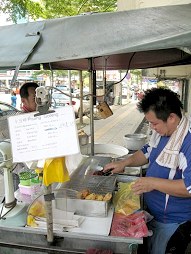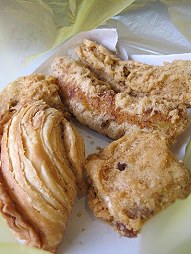Anyway, Happy Easter, Malaysia.
Wise guys
What if the "three kings" were "three thugs"? For one, there'd be more actionfirst published in The Malaysian Insider, 29 March 2013
Seth Grahame-Smith's darker retelling of the Nativity took me by surprise. I actually liked it – though I knew from just the title and synopsis that I would.

Did these three kings really exist, and are they enshrined in the Cologne Cathedral in Germany? Or is there something else behind the tale?
Grahame-Smith shakes things up a little by suggesting that the Biblical Magi are not really nobles or holy men at all, but a trio of criminals on the run who just so happened to be at the right place at the right time.
This is the premise of Unholy Night, his latest work after Abraham Lincoln: Vampire Hunter.
The protagonist and appointed leader of the fabled "magi" is Balthazar, a thief and murderer who's also known as the Antioch Ghost.
Attempting to escape the law, he's captured and imprisoned in the dungeons of King Herod in Jerusalem, along with two other thieves, Gaspar and Melchyor.
Being the most experienced and resourceful of the three, Balthazar successfully springs them all from jail.
Their escape enrages Herod but the sickly king's attention is diverted by one of his advisors towards a window.
Outside, the Star of Bethlehem is shining brightly, announcing the birth of the prophesied Saviour – and the beginning of the slaughter of the firstborns.
While escaping from Jerusalem, the three thieves witness the killings and are stunned into silence. Horror gives way to righteous fury. The result: some dead Judean soldiers and a wounded Balthazar.
Learning of the encounter, Herod sends a letter to the Roman emperor, who dispatches a real magician to deal with the holy child and his bodyguards, along with a young Pontius Pilate, who would preside over a famous trial years later.
Though it feels more true-to-life, Grahame-Smith retains some supernatural elements.
A wounded and unconscious Balthazar sees visions of a "Man with Wings" (Gabriel the Messenger?) and a wise old man who tells him to escort Joseph and Mary and their child to Egypt.
A swarm of locusts comes to their rescue at one point. When the magician shows that he's the real thing, Herod sees possibilities, including a cure for his disease and freedom from his position as a Roman satrap.
Also, other serendipitous events related to Balthazar's own troubled past explains why he uncharacteristically decided to protect the holy child.
His revenge sub-plot, which involves an old flame, brings out a sympathetic side to his generally unsavoury character that compels you to root for him.
"Stick it to him there! It'll hurt more!"
I found almost nothing to complain about. The pages practically turn themselves, and the cinematic feel of the novel screams, "Make a film out of me!" Grahame-Smith is – surprise, surprise – also a screenwriter and film and TV producer.
Some may find the portrayal of Mary in this novel a trifle unsettling, though. Balthazar initially scoffed at the immaculate conception thing and suggests a more earthly reason for Mary's pregnancy and gets an earful from the young and unexpectedly assertive, feisty new mom.
We know what happens to Joseph, Mary and their child.
We know what happens to Herod and Pilate. But it's what happens to the three "magi" at the end of Grahame-Smith's Unholy Night that makes it a satisfying read.
Those Christmas carols and Nativity scenes will never sound or feel the same.
This review was based on a complimentary advance reading copy.
Unholy Night
Seth Grahame-SmithGrand Central Publishing (April 2012)
307 pages
Fiction
ISBN: 978-1-4555-1617-9
Categories:
Book Reviews,
The Malaysian Insider







